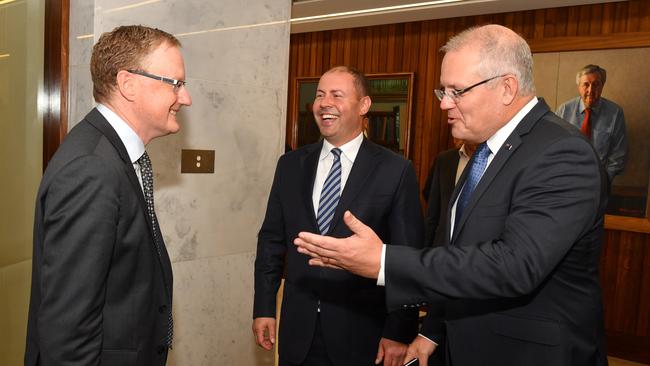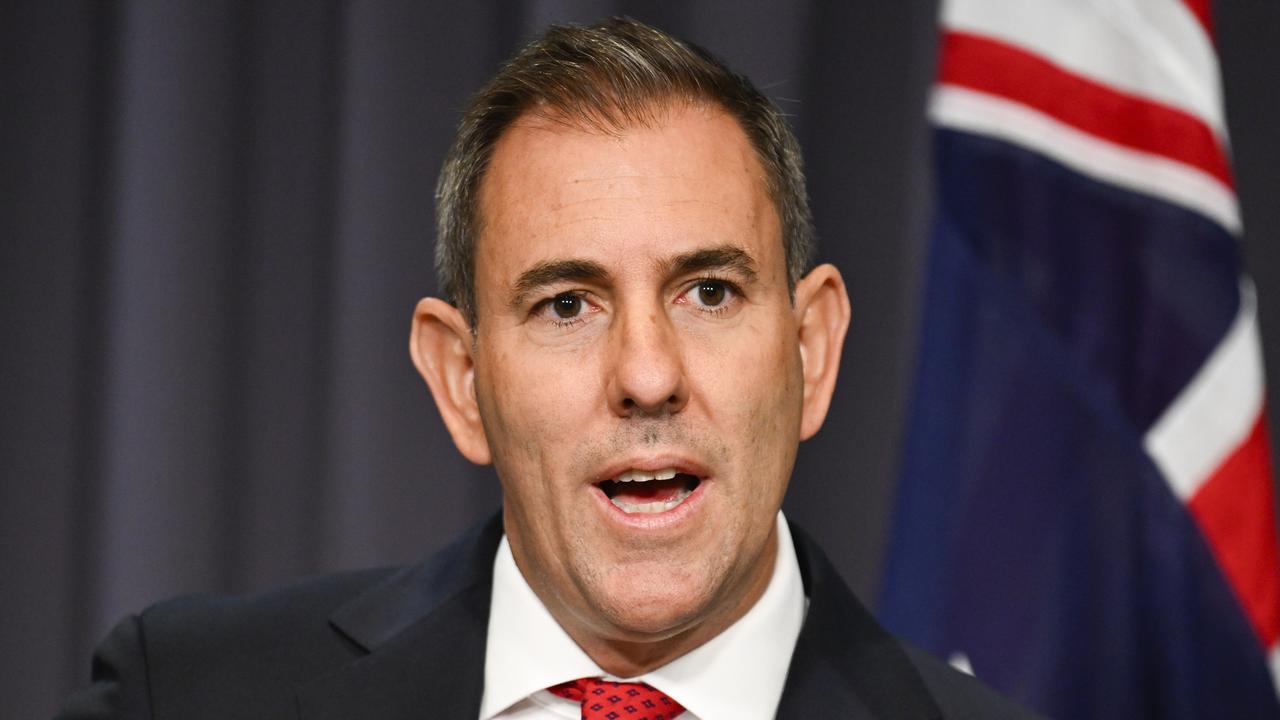On course despite the headwinds
Treasurer Josh Frydenberg is confident Australia can navigate a softer housing market and other economic headwinds.

Treasurer Josh Frydenberg is confident Australia can navigate a softer housing market and other economic headwinds, a view he expressed to Reserve Bank governor Philip Lowe during a round of key post-election meetings with top financial regulators.
Mr Frydenberg accompanied Prime Minister Scott Morrison to a meeting with Dr Lowe yesterday, with the Treasurer also holding talks with the banking regulator’s deputy chairs, Helen Rowell and John Lonsdale.
Mr Frydenberg said he told Dr Lowe the government’s existing policies, including income and small business tax cuts, a $100 billion infrastructure spending program and support for apprentices, would help to stimulate economic and jobs growth.
“The tax relief the infrastructure spending and the skills package, they’re the things that drive productivity gains and in turn economic growth and more jobs,” he said at a stockbrokers conference in his first business address since the federal election win.
“The (RBA) governor and the government both understand … the importance of this tax relief as a means of delivering more disposable income into the hands of Australians.”
His comments follow a speech by Dr Lowe on Tuesday urging more stimulus to support economic output, including infrastructure projects and policies to boost investment. In the speech the central bank signalled an official interest rate cut, from a historic low 1.5 per cent, was likely in June.
Mr Frydenberg later told the Stockbrokers and Financial Advisers Association annual conference he was mindful of local and international risks and headwinds to the Australian economy.
“The Australian economy faces some headwinds,” he said, adding that trade tensions between the US and China were escalating and weighing on growth.
Mr Frydenberg said the drought and floods in Australia in recent months had also had a “significant impact” and made growth more difficult.
Despite the headwinds, he is not stepping back from a commitment to return the budget to surplus in 2019-20.
“We are absolutely committed to the surplus,” he said.
Mr Frydenberg is also keeping a close watch on the languishing housing market where credit growth and investment have markedly declined.
“The housing market has slowed. We’ve seen the budget forecast for dwelling investment, which had been growing at about 5.5 per cent per annum on average over the last five years, it is forecast to be down 7 per cent in 2019-2020, then another 4 per cent the year after,” Mr Frydenberg said.
“The impact of a slowdown in the housing market is also being felt, so it’s not the time for higher taxes — it’s the time for a pro-growth strategy.”
After a detailed announcement by the banking regulator on Tuesday, Mr Frydenberg praised its planned relaxation of interest rate hurdles for loan assessments by banks.
“It is a positive move. It has been well-received,” he said.
“That will continue to spur lending across the economy.”
Industry participants believe the measures will boost the amount individuals will be able to borrow from banks and free up broader lending.
The Australian Prudential Regulation Authority has proposed removing an interest rate hurdle of 7 per cent that is baked into bank loan assessments, and instead plans to allow lenders to set their own threshold. A buffer of 2 per cent will rise to 2.5 per cent, above the mortgage rate, under the APRA plan. The banks currently use the higher of the two measures and add 25 basis points.
“The banks now have an opportunity to continue to provide the capital flows into the economy, that is their economic and social responsibility,” Mr Frydenberg said.
“But they are businesses and they have to do all the appropriate credit checks and make decisions that are in the best interests of their business, but at the same time it is important that credit continues to flow in the economy both to households and businesses.”
Mr Frydenberg said uncertainty in the banking market had led to “risk aversion” on lending that would subside following the end of the Hayne royal commission and the federal election.
His comments came as Fitch Ratings yesterday cautioned that while APRA’s loan serviceability threshold changes were “unlikely to significantly weaken” bank asset quality, they could lead to “risks building up” if the increased borrowing capacity spurred a rise in household leverage and strong house-price growth.



